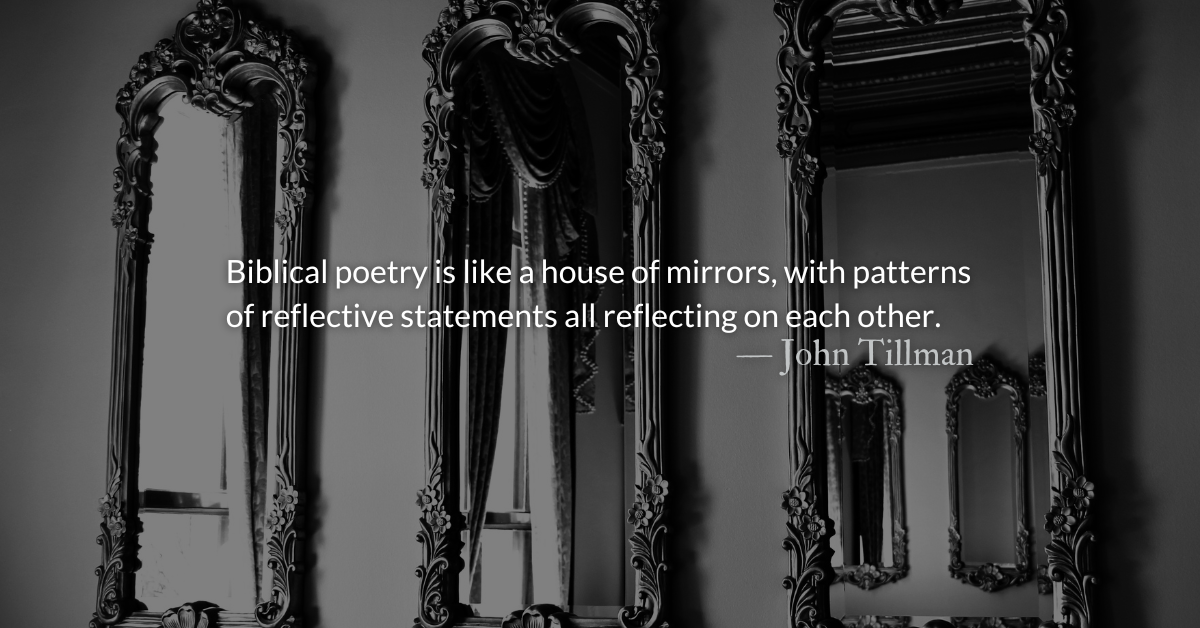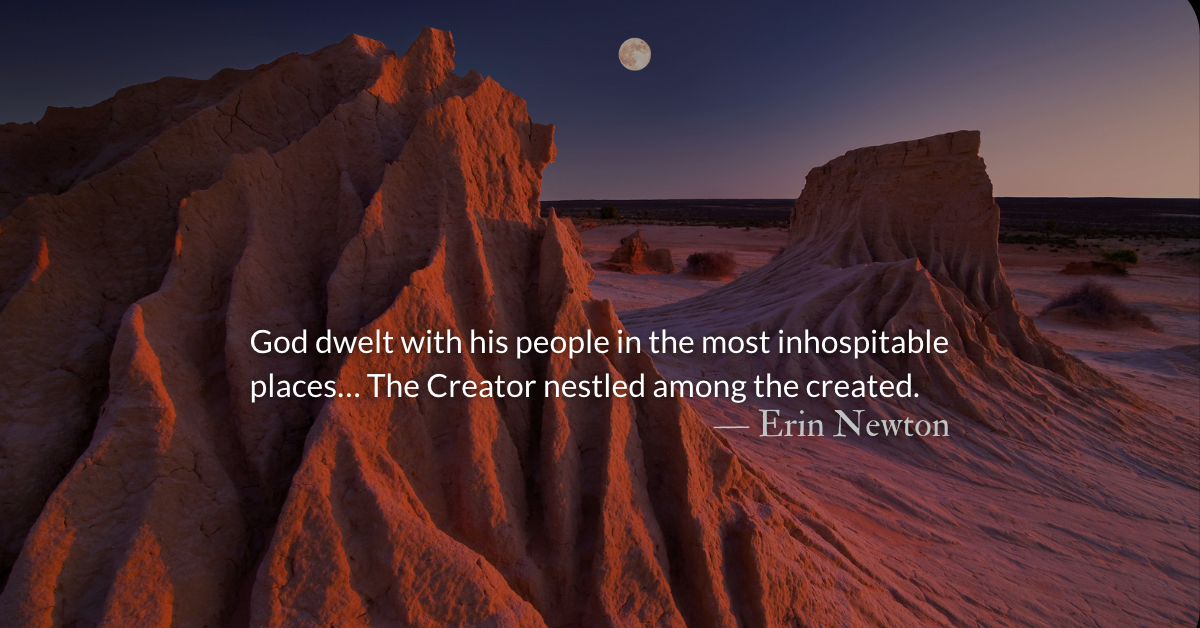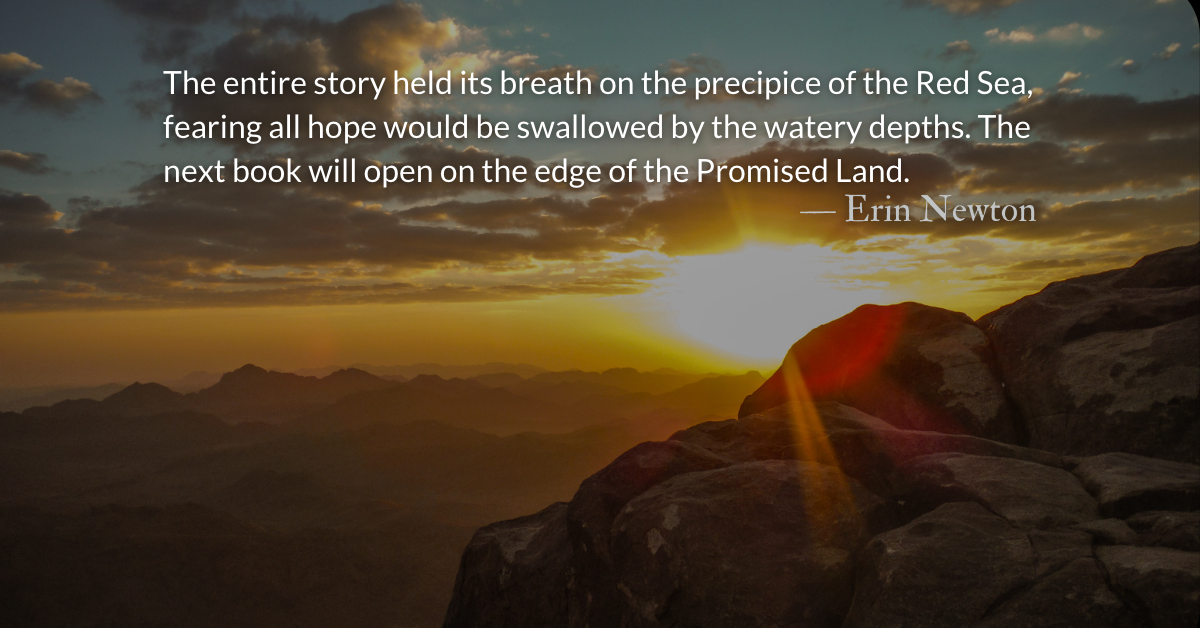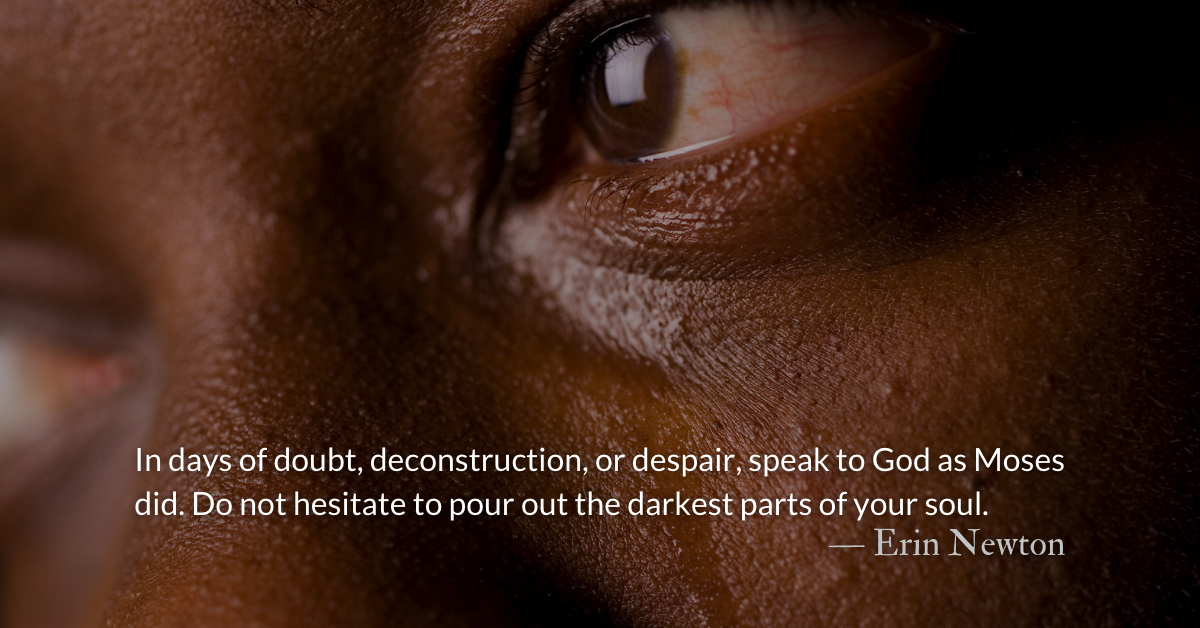Scripture Focus: Proverbs 13.1-5
1 A wise son heeds his father’s instruction,
but a mocker does not respond to rebukes.
2 From the fruit of their lips people enjoy good things,
but the unfaithful have an appetite for violence.
3 Those who guard their lips preserve their lives,
but those who speak rashly will come to ruin.
4 A sluggard’s appetite is never filled,
but the desires of the diligent are fully satisfied.
5 The righteous hate what is false,
but the wicked make themselves a stench
and bring shame on themselves.
Exodus 3.14-15
14 God said to Moses, “I AM WHO I AM. This is what you are to say to the Israelites: ‘I AM has sent me to you.’ ”
15 God also said to Moses, “Say to the Israelites, ‘The Lord, the God of your fathers—the God of Abraham, the God of Isaac and the God of Jacob—has sent me to you.’
“This is my name forever,
the name you shall call me
from generation to generation.
Reflection: Proverbs’ House of Mirrors
By John Tillman
We often remember that the Psalms are poetry. (Although we may not remember this enough.) But other parts of the Bible, including Proverbs, are also better interpreted through a poetic lens.
Hebrew poetry rhymes ideas, not sounds. Occasionally, biblical writers use homophones or near-homophones as puns, implying meaning and connections, but they do not arrange them in rhyming patterns. Parallelism is the primary tool in the biblical poetry toolkit.
Perhaps Hebrew poetry’s love of and proficiency at parallelism is a reflection on the name of the God they worshiped. God’s name has parallelism within itself. God tells Moses his name is “I am who I am.” (Exodus 3.15) God’s name is a reflective statement. “I am” is reflected by “who I am. Even his description of the use of his name is reflective. “Forever” is reflected by “from generation to generation.”
Let us reflect on a small section of Proverbs, considering each verse as a reflective couplet and each couplet as reflecting those before it and around it.
Proverbs 13.2: The first image is people eating their words. In this case, “eating one’s words” is not comeuppance. The righteous can enjoy eating their words. Next, we see others’ words produce evil, specifically violence. These people have an appetite for violence and enjoy the taste.
Proverbs 13.3: A new detail appears. Guarded, truthful, careful speech saves lives, while rash, false, violent speech brings ruin.
Proverbs 13.4: The image of the appetite returns. The sluggard’s appetite leads to dissatisfaction. The appetite for violence, mentioned above, needs more and more, while the desires of the righteous bring fulfillment.
Proverbs 13.5: More details about flavors of speech arise. The righteous develop a distaste for dishonesty and deception. The wicked gobble up and spew forth lies and distortions. They smell of what they eat and what they vomit up.
Biblical poetry is like a house of mirrors, with patterns of reflective statements all reflecting on each other. Do we see ourselves reflected in these mirrored statements?
Which son (Proverbs 13.1) do we resemble? The son who heeds? Or the son who mocks?
What do our words incite? Violence or joy?
Do our words rhyme with God’s? Or do they stink? Would we enjoy eating them?
How do our actions reflect God’s name? Do we distort his image?
Let us not look into scripture’s mirror and forget what we see. (James 1.23-24)
Divine Hours Prayer: The Call to Prayer
Let us bless the Lord from this time forth forevermore. — Psalm 115.18
– From The Divine Hours: Prayers for Summertime by Phyllis Tickle.
Today’s Readings
Proverbs 13 (Listen 2:45)
Mark 3 (Listen 3:41)
Read more about The Promise of Proverbs is Change
It is crucial to ask, “Are we becoming people of wickedness or righteousness?” What we become can change our world.
Read more about The Logic of Proverbs
Foolishness, folly, and violence will be attractive because they seem effective. The violent will inevitably prosper. How will we respond?










